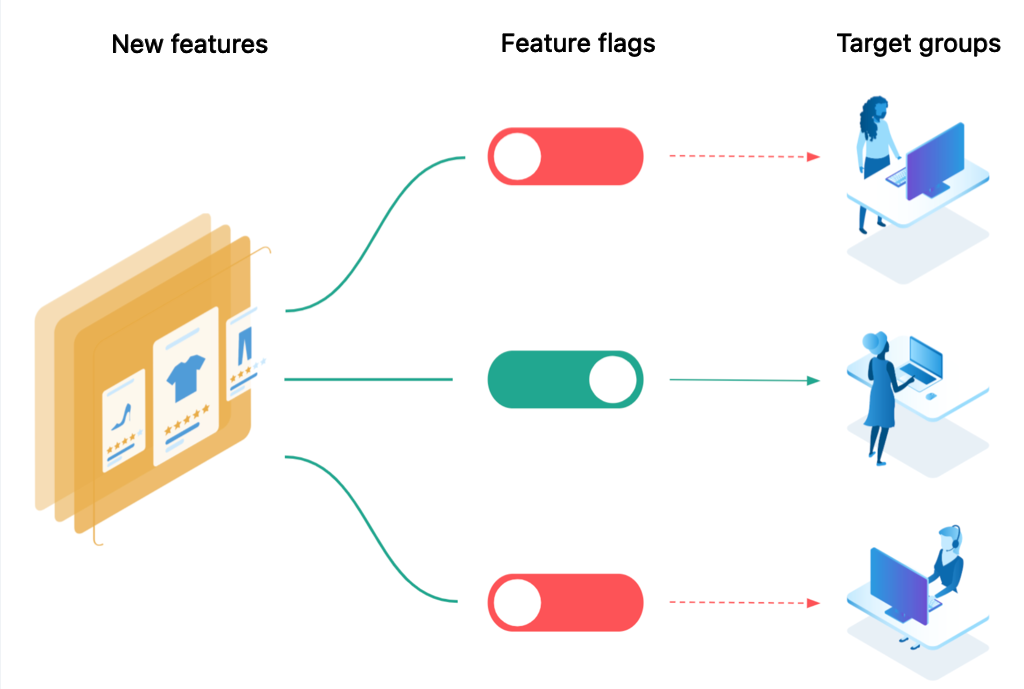Welcome to CloudBees Feature Management! This page is the best place to start learning the basics of CloudBees Feature Management, what problems it solves, and how it compares to other solutions.
CloudBees Feature Management is a feature management platform that enables teams to progressively toggle features on and off for certain segments of users. Once users are targeted by certain attributes, CloudBees Feature Management makes it simple to roll out different features to them - managing who is seeing what when.

Feature flags were made popular by companies like Netflix, FaceBook, and Amazon to help them deploy hundreds of times a day, test in production, experiment with their products, and more.
CloudBees Feature Management is built around the following core features:
Feature flags
Feature flags are little snippets of code that surround certain blocks of feature code, to remotely enable or disable that feature. We say remotely, because the feature configuration can be turned on or off for applications even while they are in production!
if(paymentFlag.isEnabled()){ //New Feature Code } else{ //Current Code }
Feature flags can be implemented on the client side or server side and help teams achieve Continuous Delivery with less risk.
| SOC 2® is a Service Organization Control (SOC) framework administered by the American Institute of CPAs (AICPA) that assesses an organization’s adherence to the five Trust Service Criteria (TSC). CloudBees Feature Management is SOC 2 type II compliant. For more information, refer to SOC 2 compliance. |
Target groups
Target groups are segments of users that features are displayed to. Target groups can have attributes and commonalities like geo region, browser, email, or custom attributes like Plan Type or Account ID.
Progressive releases
Once feature flags have been created and a target group selected, it is time to roll out our feature. We can do this a number of ways, including by percentages, or time. We call this Progressive Delivery.
Configuration as Code
Configuration as Code (CasC) allows the entire configuration of CloudBees Feature Management to be stored as source code. It integrates the CloudBees Feature Management UI with your existing environment. This approach brings many benefits.